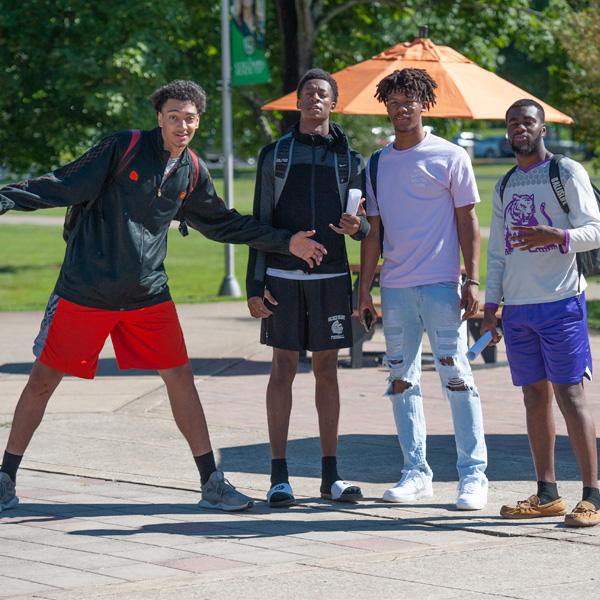Nursing Students Participate in Military Immersion Training
Caption: Columbia State Nursing Student Anna Bevis poses with an Air Force Helicopter during Operation Immersion.
The Substance Abuse and Mental Health Services Administration (SAMHSA), along with the Tennessee Department of Mental Health and Development Disabilities (TDMHDD), the Tennessee National Guard (TNNG) and the Tennessee Veterans Task Force hosted the third OPERATION IMMERSION on August 30 - September 1, 2010, at the Tennessee National Guard Training Center in Smryna, TN. Substance abuse professionals from 19 states and 5 tribal organizations participated and learned about this first-of-its-kind military immersion training with the goals of replicating similar programs nationwide.
Nursing students from Columbia State Community College were among those that participated.
"This was an honor for our students and the college," said Barbara Blum, Nursing Program Director at Columbia State. "Our students ate/slept/trained just like the other participants, while learning about behavioral health issues."
The training was designed to immerse attendees in military culture and the deployment experience in an effort to help remove the barriers and apprehension soldiers often face when seeking help for mental health or substance use disorders. SAMHSA's role in this effort is part of the agency's strategic initiative on promoting the behavioral health interests of those in the military, veterans, and their families.
During the event, attendees stayed in barracks, went through a modified early morning Physical Training (PT), completed chores and inspections, toured a C-130 cargo plane and Black Hawk Helicopter, and ate a Meal Ready to Eat (MRE).
Major General Terry M. Haston, Adjutant General of the Tennessee National Guard: TDMHDD Commissioner Virginia Trotter Betts and Dr. H. Westley Clark, Director, SAMHSA's Center for Substance Abuse Treatment, provided opening remarks for the event. The event also featured presentations by experts from SAMHSA and Tennessee on Post Traumatic Stress Disorder (PTSD), homelessness, and suicide prevention.







